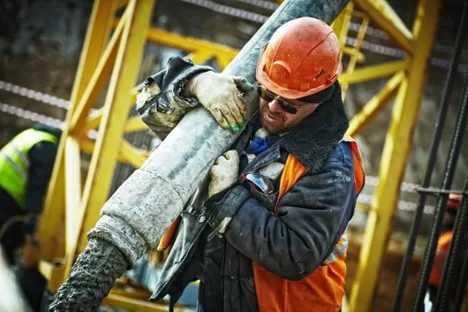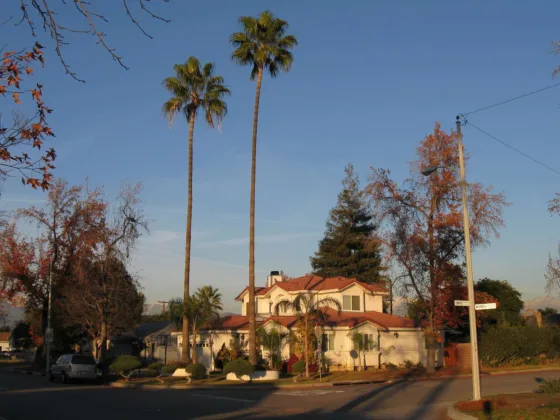The Evolution of Las Vegas Real Estate is a comprehensive exploration of the transformational journey of Las Vegas’s real estate landscape.
Once synonymous with flamboyant, Las Vegas has evolved to embrace a burgeoning residential real estate market. This shift has been influenced by changing economic dynamics, demographic trends, and strategic planning.
However, this evolution is not without challenges. The book provides an in-depth analysis of these factors, offering valuable insights for real estate professionals, urban planners, and investors.

It also presents a forward-looking perspective on the future of Las Vegas’s real estate, making it a seminal reference in the field.
The Glittering Era of Las Vegas
Surging in popularity during the mid-twentieth century, Las Vegas began to transform the city’s real estate landscape with its extravagant design and grand scale. This era marked a significant shift in architecture, which began to incorporate themed designs, drawing influence from global landmarks and cultures.
This architectural renaissance was driven not only by competition for customer attention but also by heightened celebrity influence. High-profile figures frequented these estates, reinforcing their status and attractiveness. Casinos essentially became cultural landmarks, their architecture a symbol of luxury, grandeur, and exoticism.
Changing Dynamics of the Las Vegas Economy
The shift towards a more diversified economy has significantly impacted the real estate market of Las Vegas. Pivotal factors like tech industry influence and tourism fluctuations have reshaped its economic landscape with both positive and negative implications.
- Tech industry influence.
- The tech industry has stimulated job growth, driving demand for residential and commercial spaces.
- However, the influx of high-income tech workers has escalated housing prices, challenging affordability for some residents.
- Tourism fluctuations:
- Tourism remains a vital economic force, with visitor spending boosting demand for hospitality and retail properties.
- Yet, economic downturns and societal changes, like the recent pandemic, can prompt sudden drops in tourism, impacting the stability of the real estate market.
Rise of Residential Real Estate in Vegas
Fueled by a diversified economy, the residential real estate market in Las Vegas has witnessed a significant surge in demand. This growth is primarily attributed to millennial migration and an increasing preference for sustainable architecture.
The millennial demographic, drawn by employment opportunities and the city’s evolving cultural scene, is reshaping the housing landscape. They favor environmentally conscious designs that promote energy efficiency and reduce carbon footprints, prompting developers to integrate sustainable architecture into their projects.
An investigative analysis reveals a positive correlation between these factors, evidencing the city’s successful transition from an estate-centric economy to a robust, diversified one. The rise of residential real estate in Vegas is indicative of a city adapting to changing economic and demographic trends.
Factors Fueling Las Vegas’s Transformation
The transformation of Las Vegas from an estate-centric city to a burgeoning residential hub was not a spontaneous occurrence but the result of several key factors.
Economic Diversification Impact
Economic diversification has played a pivotal role in the transformation of Las Vegas from an estate-dominated city to a thriving real estate market. Historically dependent on tourism, the city has made strategic efforts to diversify its economy, thus reducing tourism dependency and fostering a more balanced economic environment.
Investment in Infrastructure Development:
- Expansion of transportation networks
- Upgrading of utilities and public services
Diversification of Industries:
- Encouragement of tech startups
- Development of medical and educational institutions
These measures have sparked increased interest and investment in Las Vegas real estate, contributing to the city’s transformation.
Population Growth Effects
How has the population growth, resulting from economic diversification, acted as a catalyst in the transformation of the Las Vegas real estate landscape? The increase in population has spurred infrastructure expansion, necessitating new residential, commercial, and public spaces.
Read Also :
Contrarily, water scarcity concerns have influenced the development of more sustainable and water-efficient buildings.
| Factor | Impact on Las Vegas Real Estate |
| Population Growth | Increased demand for diverse real estate |
| Economic Diversification | Expansion in residential, commercial, and public real estate |
| Infrastructure Expansion | Facilitated large-scale developments |
| Water Scarcity Concerns | Inspired sustainable and water-efficient buildings |
| Tourism Industry Growth | Boosted demand for hospitality real estate |
Changing Housing Preferences
In light of these factors, a significant shift in housing preferences has also been instrumental in transforming Las Vegas’s real estate market.
Two primary trends have been central to this transformation:
Millennial Preferences:
- Millennials, with their preference for connectivity, convenience, and lifestyle amenities, are opting for urban living spaces. This demographic shift is fueling the rise of multi-family residences and high-rise condominiums in the heart of the city.
Eco-friendly Housing:
- The demand for sustainable, energy-efficient homes is increasing. An eco-conscious market is pushing developers to incorporate green technologies and designs into their projects.
These preferences, see All Vegas Homes for Sale, combined with Las Vegas’s steady economic growth, are reshaping the city’s real estate landscape, steering it towards a more sustainable and inclusive future.
Challenges in Developing Residential Communities
Despite the rapid growth, several critical challenges persist in the development of residential communities in Las Vegas.
Sustainable construction has become a necessity, yet it presents a significant difficulty.
Developers are required to meet strict environmental regulations, which necessitate innovative building techniques and materials that often come with higher costs. This, in turn, impacts the affordability of houses, creating a barrier for potential homebuyers.
Las Vegas’s desert environment imposes additional constraints, such as water scarcity and extreme temperatures, increasing the demand for energy-efficient designs.
While these challenges are considerable, they are not insurmountable. By fostering a comprehensive understanding of these issues, developers can create strategies that ensure the sustainable growth of residential communities in this bustling city.
Future Outlook for Las Vegas Real Estate
As we shift our perspective toward the future of Las Vegas real estate, it becomes crucial to analyze market trends, project property values, and examine the impact of urbanization.
These factors hold significant potential to shape the city’s real estate landscape in the years to come. In this context, a comprehensive understanding of these elements will provide a detailed forecast for potential investors and stakeholders.
Market Trends Analysis
While it’s true that the Las Vegas real estate market has seen significant fluctuations over the years, experts predict steady growth and robust opportunities in the foreseeable future. Despite periods of market instability, investment opportunities abound.
In an analytical scrutiny of trends, two key factors emerge:
- Population Growth: Las Vegas continues to attract new residents due to its unique blend of lifestyle and economic opportunities.
- Housing Demand: This population influx exerts upward pressure on housing demand, pushing prices higher.
- Economic Diversification: The city is diversifying beyond the gaming industry, creating new sectors for investment.
- Commercial Real Estate: This diversification translates into increased demand for commercial properties, offering promising returns for investors.
Property Value Projections
In light of the aforementioned market dynamics, experts foresee a steady escalation in Las Vegas property values, shaped by the city’s population growth and economic diversification.
A shift towards affordable housing, coupled with an influx of tech companies, is stimulating an increase in both demand and investment opportunities. This diversification has created a more robust real estate market, less dependent on the fluctuations of the casino industry.
The future appears bright for Las Vegas, with experts predicting a sustained upward trend in property values, highlighting the city’s resilience and adaptability. However, this growth also presents challenges in maintaining affordability.
Impact of Urbanization
Urbanization continues to shape the future of Las Vegas real estate, driving both growth and transformation in the local property market. As the city expands outward, the consequences of urban sprawl become more apparent, altering the dynamics of housing demand and supply.
Urban Sprawl Consequences:
- Increased demand for suburban properties due to population growth.
- The strain on existing infrastructure necessitates new developments.
Infrastructure Developments:
- Expansion of transportation systems to accommodate growing communities.
- Enhancement of utilities and public services in newly developed areas.
Conclusion
The metamorphosis of Las Vegas from a casino-dominated landscape to a residential real estate hotspot underlines the city’s economic resilience.
However, challenges persist in developing residential communities.
Vigilant planning, strategic investments, and innovative housing solutions are essential to sustain this transformation, ensuring a vibrant and diverse future for Las Vegas real estate.









